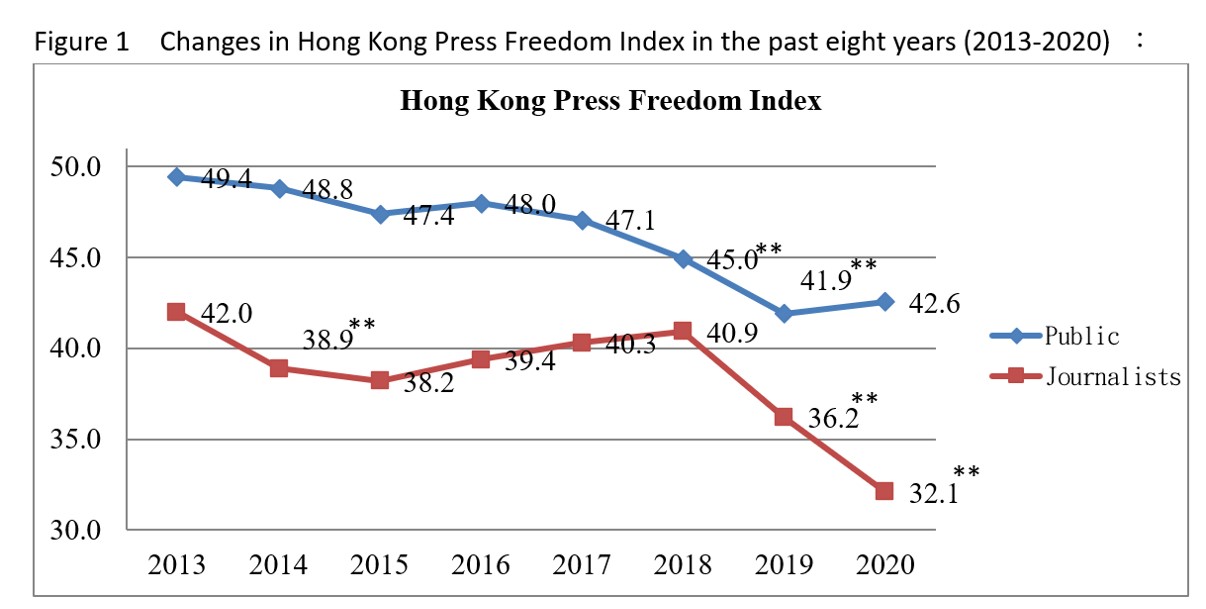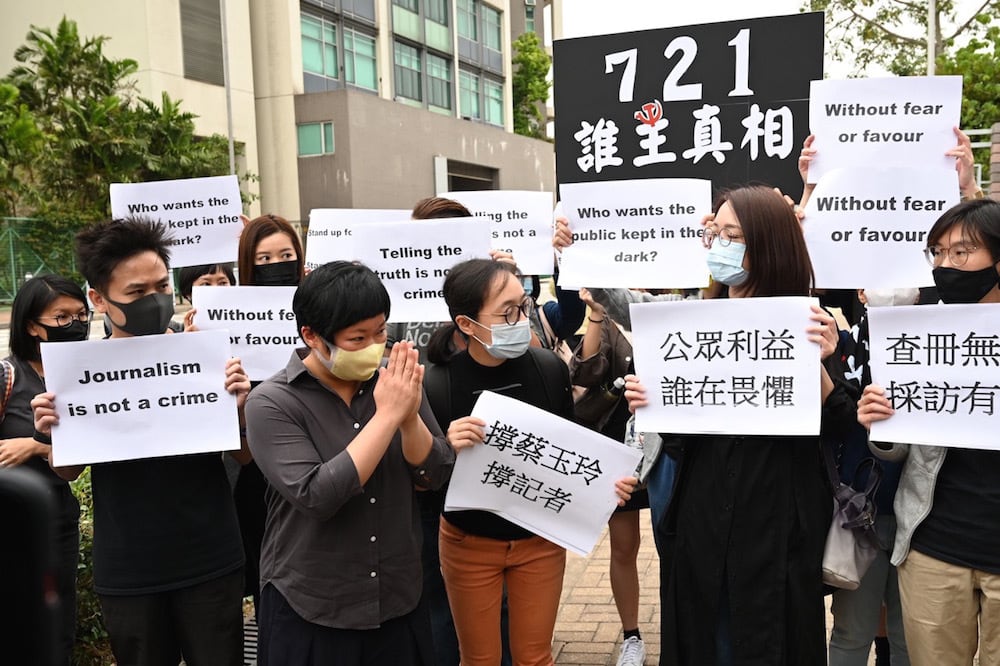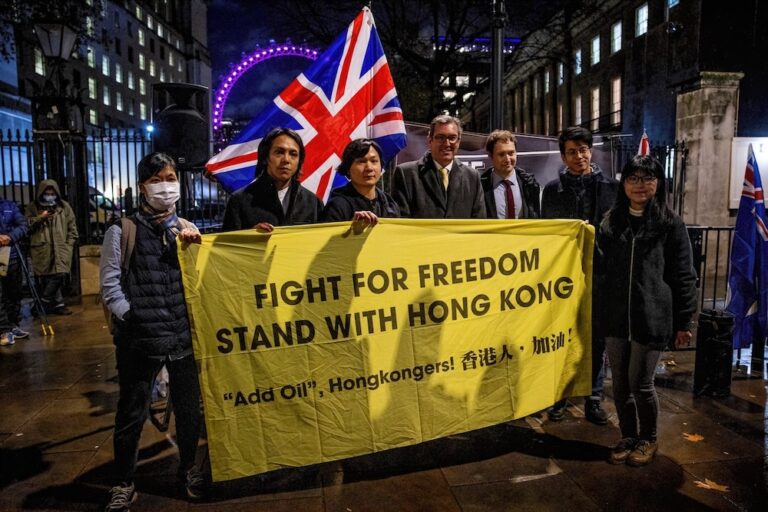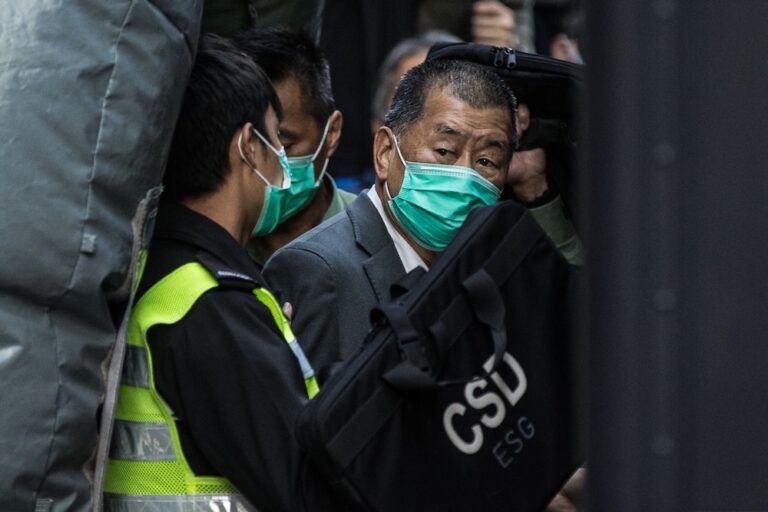Of the 367 responding journalists, 91 percent said press freedom in Hong Kong had worsened compared to a year ago. The survey was commissioned by the Hong Kong Journalists Association.
This statement was originally published on hkja.org.hk on 3 May 2021.
The Hong Kong Press Freedom Index 2020 released by the Hong Kong Journalists Association (HKJA) to mark World Press Freedom Day shows that the index for journalists has dropped to a record low. The main reason for the drop is that, journalists are more cautious than ever when they criticize the HKSAR Government and the Central Government, and managements have put more pressure on them.
HKJA pointed out that Freedom of the Press in Hong Kong has greatly deteriorated in the past year. After the enactment of the Hong Kong National Security Law, the Government continued to suppress the news media. Police conducted searches in news organization premises and revised the definition of “media representatives” in their Police General Order without previous communication with the sector. Journalists seeking the truth were prosecuted, various government departments tightened their registry search measures, etc. – all these incidents impeded news gathering and undermined press freedom.
Below are the findings of the latest annual surveys commissioned by the Hong Kong Journalists Association. Comprised of two parts, the public and journalists respectively, they were conducted between February and March by the Hong Kong Public Opinion Research Institute (PORI) for the compilation of the annual Hong Kong Press Freedom Index.
Figure 1 Changes in Hong Kong Press Freedom Index in the past eight years (2013-2020):

Press Freedom Index for the general public
The Press Freedom Index for the general public shows a slight increase of 0.7 to 42.6 on a scale of 0-100. The reason for this slight increase is mainly due to the reduction in conflicts between police and civilians caused by the anti-extradition movement. The risk of reporters encountering violent treatment at the frontline has been correspondingly reduced, and the scores in the public survey concerning “local journalists becoming the targets of extralegal intimidation or physical violence when reporting” have greatly increased. Although the public’s index increases slightly, three of the scores still dropped sharply by 0.5 to 0.9 points, including (1) adequacy of legislative safeguards for journalists’ free access to information; (2) the watchdog role played by the local news media; (3) the diversity of viewpoints within local media.
Table 1. Four factors with significant changes affecting the general public press freedom index (on a scale of 0-10)
| General Public | 2013 | 2014 | 2015 | 2016 | 2017 | 2018 | 2019 | 2020 | Change of mean scores |
| Adequacy of legislative safeguards for journalists’ free access to information (the higher the score, the more adequate) | 5.8 | 5.8 | 5.7 | 5.7 | 5.7 | 5.3** | 4.7** | 4.2 | -0.5** |
| Effectiveness of watchdog role played by the local news media? (the higher the score, the more effective) | 6.6 | 6.3** | 6.3 | 6.2 | 6.3 | 5.9** | 6.0 | 5.1 | -0.9** |
| The diversity of viewpoints within local media (the higher the score, the more diversified) | 6.0 | 5.9* | 5.8 | 5.7 | 5.8 | 5.4** | 5.5 | 5.0 | -0.5** |
| Local journalists becoming the targets of extralegal intimidation or physical violence when reporting (the higher the score, the more uncommon) | 5.0 | 4.8 | 4.6 | 4.6 | 4.7 | 4.7 | 3.3** | 4.1 | +0.8** |
* The larger the number, the more positive the representative’s evaluation; the smaller the number, the more negative the evaluation.
** Compared with the last survey, the change is statistically significant at p=0.01 level.
Press Freedom Index for journalists
The Press Freedom Index for journalists is 32.1, showing a sharp decrease of 4.1 points compared to that of the 2019 index. There is a drop of a total of 8.8 points in the past two years. The main reasons are that there have been significant declines in the scores of various issues, including doubt or hesitation when criticizing the HK Government and the Central Government, the adequacy of legislative safeguards for journalists’ free access to information, personal safety threats to reporters when covering news, effectiveness of the watchdog role played by the local news media and the diversity of viewpoints within local media.
Of the 367 responding journalists, 91% said press freedom in Hong Kong had worsened compared to a year ago. As many as 85% of the responding journalists agree with comments that the Hong Kong government is the source of suppressing press freedom. 40% of respondents said their seniors had exerted pressure on them to drop or reduce reporting on Hong Kong independence; which accounted for a sharp increase of 7 percentage points, showing a sharp increase in two consecutive years; 69% of the respondents said the increasing emphasis of one country over two systems by the central government officials had made them uncomfortable in reporting dissenting voices.
In the past year, various incidents were rated as harmful to press freedom by the vast majority (96% or more) of responding journalists, and most of them were related to government and police suppression, which includes: 1. Enactment of the ong Kong National Security Law, 2. Police conducting a search at Next Media Premises, 3. Police amended the definition of “media representatives” in the Police General Order, membership cards issued by HKJA and HKPPA no longer recognized, 4. Bao Choy, Producer of RTHK’s program “Hong Kong Connection” accused by the police of making false declarations after checking vehicle registrations for news gathering purpose and 5. Mass layoff of i-Cable’s news department.
The public survey was conducted by the Hong Kong Public Opinion Research Institute from 8 March to 12 March 2021. A total of 1,023 Cantonese speaking Hong Kong residents aged 18 or above were successfully interviewed. HKJA distributed questionnaires to journalists between 16 February and 31 March 2021, with a final successful sample of 367.
HKJA would like to express its sincere appreciation for the generous help of members of the survey advisory group, who are as follows:
Mr. Chris Yeung, Chairperson of HKJA and Convenor of Press Freedom Subcommittee
Prof. Clement So (Professor, School of Journalism & Communication, CUHK)
Prof. Lisa Leung (Associate Professor, Department of Cultural Studies, Lingnan University)
Dr. Robert Chung (President and Chief Executive Officer, PORI)
If there are further enquiries, please call us at 25910692.
Hong Kong Journalists Association
3 May 2021



